31.08.2010Conclusions from the local campaigns for prevention of early marriages in Roma community in Bulgaria
The implementation of the local campaigns directed to preventing forced/early marriages organized by young Roma activists in ten localities in different parts of Bulgaria has concluded in August. The campaigns were part of the project "Prevention of early / forced marriages", implemented by Center Amalipe and supported by the Daphne III Programme of the European Commission.
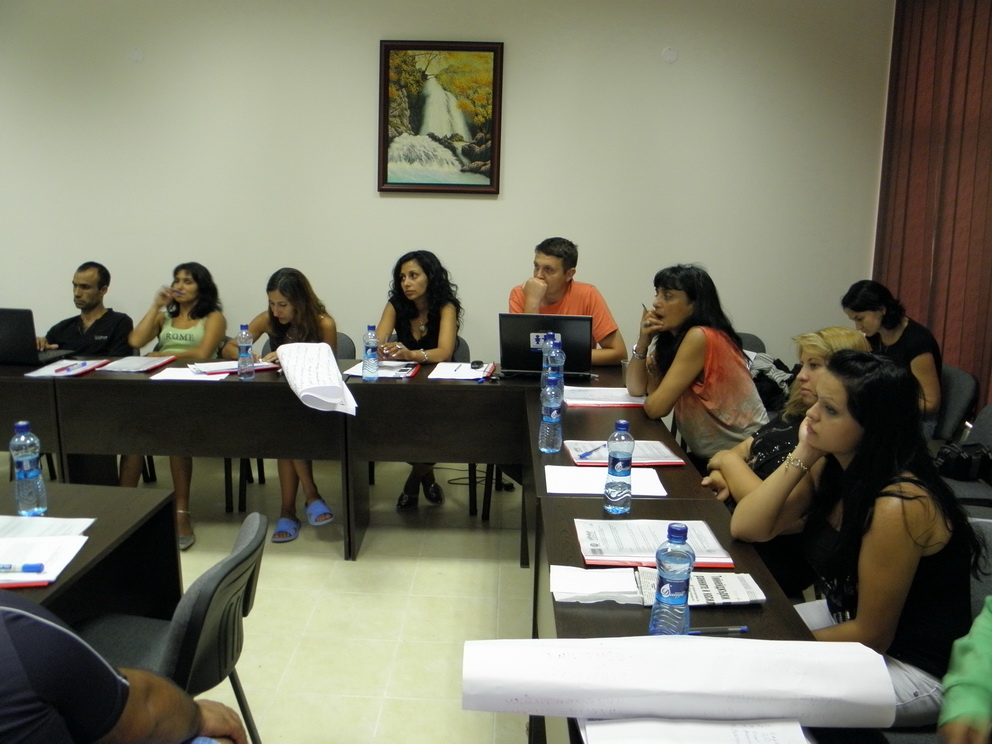 A workshop gathered the young people who had been trying to find ways to overcome this problem. It took place between 29 and 31 August near Veliko Tarnovo. The young activists from the towns of Vidin, Vratca, Sliven, Yambol, Rakitovo, Rakovski Kuklen and villages Vodoley and Kardam discussed their activities and shared ideas for further initiatives related to prevention of early marriages. In addition, the aim of the meeting was to consider how their own activities could be institutionalized and could receive support from the state and various municipal institutions. To support their work the sessions were moderated by Georgi Bogdanov, Mariana Milosheva, Angel Getsov and Deyan Kolev.
A workshop gathered the young people who had been trying to find ways to overcome this problem. It took place between 29 and 31 August near Veliko Tarnovo. The young activists from the towns of Vidin, Vratca, Sliven, Yambol, Rakitovo, Rakovski Kuklen and villages Vodoley and Kardam discussed their activities and shared ideas for further initiatives related to prevention of early marriages. In addition, the aim of the meeting was to consider how their own activities could be institutionalized and could receive support from the state and various municipal institutions. To support their work the sessions were moderated by Georgi Bogdanov, Mariana Milosheva, Angel Getsov and Deyan Kolev.
The first day of the meeting passed in sharing and discussing the activities carried out in different communities, the difficulties that young leaders had experienced in dealing with the problem and their conclusions about the effectiveness of each of the models applied according to its impact. In the “Nov pat” neighborhood in Vidin the campaign was carried out by the members of the youth club “Drom" Foundation including volunteers. The team there has been working for years on the issues of desegregation and have know the children who fall under the threat of early marital commitment. Within the campaign meetings were held with representatives of the target group; a pediatrician informed the children and their parents about the health risks for young mothers and the health of the children they grow. The most important things in terms of reproductive health had been also discussed. Representatives of the Department of Child Protection informed the people in the community about the major positions in the legal framework related to early marital cohabitation as well as with the mechanisms by which social services could be most useful for residents of New Road neighborhood. The enthusiasts from Vidin stressed that in a Roma neighborhood raising the issue for the first time among the community and putting it to public consultations is already a success. They account as a success also the fact that the young Roma are aware that the early marriage is an impediment to their development and that they have the desire hope and potential to break stereotypes and to lead community change.
In Yambol the local campaign activities were implemented by a team with solid experience in dealing with the health problems of the Roma community led by Kina Assenova, a health mediator in the municipality of Tundzha. Public Information campaign there covered the Roma community from the villages of Veselinovo, Zavoy and Hadzhi Dimitrovo. Lectures talked on health topics concerning the effects of early pregnancies and births, and sexually transmitted diseases as well. The results from the survey "Wedding attitudes among Roma in Bulgaria” was presented to the public; films on health and reproductive rights were shown and discussed. Meetings with educated Roma who have already developed professional career as an alternative to early marriages were organized for the inhabitants of the three villages. In this region, as in many others, the education is allegedly defined as a key factor that could postpone the start of informal cohabitation and marriage. The local team managed to arrange with the Mayor of Tundzha Municipality funding for a school bus to transport 30 children from the villages Zavoy and Veselinovo in the town of Yambol, to enable them to continue their education despite the significant financial hardship experienced by their families. The campaign was reflected by several local media and covered almost 470 people. The greatest achievement of the activities is that they were able to prevent several potential early marriages (one of which - between twelve and thirteen year’s old boy and girl) by the innovative method of "Community-group" conference.
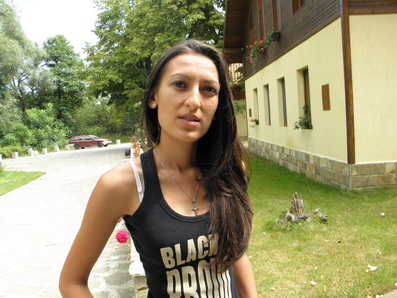 In the village of Kardam, Targovishte, the local campaign was led by Maria Ivanova, a Romani activist pursuing a degree in Public Administration at the University of Veliko Tarnovo. Maria is a member of the conservative and traditional Roma sub-group Kaldarashi and she is one of the few girls among this sub-group that have completed secondary education and the only university student from the district. Her work was extremely difficult, partly because of the internal regulations in the Kaldarashi closed community and their rules (a 23 year old girl was hardly taken seriously by the older); furthermore, the Roma community from the village of Kardam knew almost nothing about the ongoing processes in the country concerning Roma integration. Series of community meetings were held. One of them was attended by representatives of institutions: teachers, medical doctors, social workers and the mayor. Young and educated Roma, who study and work without a negatively impact on their private life and at the same time respect the Roma traditions also attended the meetings. As a result, the people in the village Kardam have finally began to openly talk about early marriages and perceive them as a problem. "It was particularly important that the meetings involved not only young but also older people, most of which agreed with our arguments. Through this campaign, I’ve managed to establish my reputation in the community and now they accept me differently" Maria Ivanova said. Activities regarding the prevention of early marriages will continue because in the village of Kardam a youth Roma club, which will be headed by Maria has been formed.
In the village of Kardam, Targovishte, the local campaign was led by Maria Ivanova, a Romani activist pursuing a degree in Public Administration at the University of Veliko Tarnovo. Maria is a member of the conservative and traditional Roma sub-group Kaldarashi and she is one of the few girls among this sub-group that have completed secondary education and the only university student from the district. Her work was extremely difficult, partly because of the internal regulations in the Kaldarashi closed community and their rules (a 23 year old girl was hardly taken seriously by the older); furthermore, the Roma community from the village of Kardam knew almost nothing about the ongoing processes in the country concerning Roma integration. Series of community meetings were held. One of them was attended by representatives of institutions: teachers, medical doctors, social workers and the mayor. Young and educated Roma, who study and work without a negatively impact on their private life and at the same time respect the Roma traditions also attended the meetings. As a result, the people in the village Kardam have finally began to openly talk about early marriages and perceive them as a problem. "It was particularly important that the meetings involved not only young but also older people, most of which agreed with our arguments. Through this campaign, I’ve managed to establish my reputation in the community and now they accept me differently" Maria Ivanova said. Activities regarding the prevention of early marriages will continue because in the village of Kardam a youth Roma club, which will be headed by Maria has been formed.
In the village of Vodoley situated near Veliko Tarnovo the activities for prevention of early marriages were led by Angel Angelov who is a student in the elite school of architecture, construction and geodesy. Within the campaign he organized meetings with his peers and their parents who discussed issues concerning reproductive health and family planning, lectures regarding the history of Roma and diversity of Roma community; they further debated on the need for continuing education and seeking opportunities for professional development as primary and alternative path for community development. An idea to form a youth club after the end of this campaign spontaneously appeared among the young people from the village; it should be a place where one can share its problems and receive help in finding solutions and host joyful events.
Rakitovo campaign was organized by Anche Krivonozova and the team from “Badeshte – Rakitovo” Foundation. The main activities they have tested to influence attitudes about early marriages were focus groups of girls, boys and women; professional guidance to those graduating primary education; forming a female group for outreach work with families at risk and showing a good example of young people from the community who have already built their successful careers avoiding the trap of an early marriage; solving concrete case and preventing an early marriage using the Community-group conference. As a result a change in the sensitivity of the Roma community in Rakitovo towards the problem and raised awareness regarding the need for change in attitudes was achieved. 23 Roma children from a total of 27 have completed primary education in June; they have already been enrolled in secondary schools and there is no risk of early marriage to occur among them, Anche proudly stated.
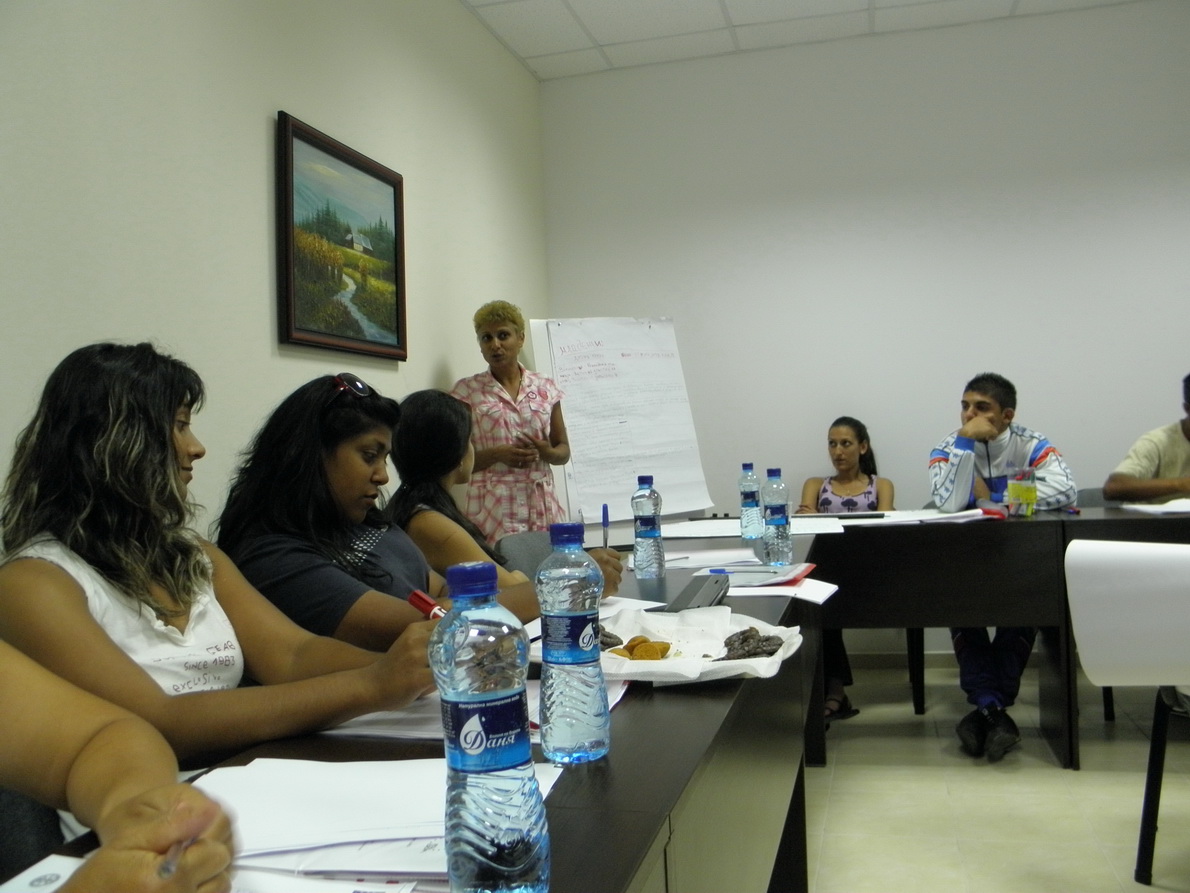 The team chaired by Georgi Markov from Rakovski also worked to clarify the mechanisms that could prevent early marriages. Their work was oriented towards Roma communities in both the town of Rakovski and in the surrounding villages of Cholakovi, Belozem, Momino selo and Shishmanovtzi. Many meetings were held in those localities and the outreach team stressed once again how important were the differences between the groups covered by the campaign. In each case they had to identify the specific, most appropriate approach to reach the minds and hearts of people. Successful model of influence on the attitudes of representatives of all age groups in the region was to use the authority of religious leaders representing the new churches. Other Roma leaders in the neighborhoods cooperated as well. As a result, the team prevented a possible case of early marriage in the two of the villages.
The team chaired by Georgi Markov from Rakovski also worked to clarify the mechanisms that could prevent early marriages. Their work was oriented towards Roma communities in both the town of Rakovski and in the surrounding villages of Cholakovi, Belozem, Momino selo and Shishmanovtzi. Many meetings were held in those localities and the outreach team stressed once again how important were the differences between the groups covered by the campaign. In each case they had to identify the specific, most appropriate approach to reach the minds and hearts of people. Successful model of influence on the attitudes of representatives of all age groups in the region was to use the authority of religious leaders representing the new churches. Other Roma leaders in the neighborhoods cooperated as well. As a result, the team prevented a possible case of early marriage in the two of the villages.
The campaign in Vratsa was carried out by the united efforts of three young women - Albena Kisiova, Galina Kolcheva and Maya Metodieva. Significant success of their activities was the support to the campaign by Roma students from the youth group "Detelina". The team has organized a series of meetings with the Roma community in the town and surrounding villages. The topic of early marriages, which is the primary goal of the campaign, was often been replaced by other aching problems of people longing for attention and assistance in resolving the difficulties which they had met in their daily life. The positive trend is being observed in the community in terms of attitudes towards education and attitude toward the increasingly popular belief that young people are the ones who should decide when and whom to bind with, but only after they have achieved good education and life stability. Great interest and lively discussions arose from the presented statistics concerning the Roma in Bulgaria, and the themes regarding family planning and reproductive health.
Radost and Veneta Zaharievi organized the campaign in Sliven. They relied on the support of the team of young Roma volunteers. As a main focus of their activities they emphasized on: providing information on opportunities and ways of continuing the education of young people from the most marginalized Roma ghetto of Sliven (Nadezhda neighbourhood), both in schools and in universities. The message of their campaign was that such a possibility always exists even to those who have married. Many meetings were held with representatives of various Roma groups in the crowded neighborhood (Muzikanti, Millet and Laho) who discussed attitudes towards the practice of early marriage commitment and issues concerning sexual maturation, pregnancy, childbirth, abortion, contraception methods and other related topics.
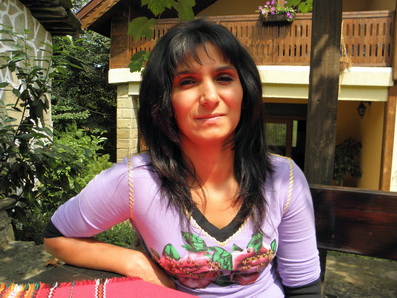 The team of Albena Kostadinova (chair of “Indiroma” Foundation) in Kuklen and Perushtitza implemented a series of meetings with Romani women. They have chosen as main method of intervention mentoring and training of 16 women by a professional psychologist. The idea of the training of women was to create opportunities among them to guide other women that are in risk of early marriage to overcome this precarious situation. Moreover, trainings of young girls aimed at their personal development and resulted in enhancing their personality and developing their skills for self-expression. There were projections of different documentaries conducted with organized interactive discussions on the topics related to early marriages. The campaign covered around 240 Roma women and was reflected by the local newspaper "New Voice". The result of the efforts of the team from the town of Kuklen is a change in attitudes among local people who have started perceiving early marriages as a problem and in increasing motivation among young girls from the community to continue their education.
The team of Albena Kostadinova (chair of “Indiroma” Foundation) in Kuklen and Perushtitza implemented a series of meetings with Romani women. They have chosen as main method of intervention mentoring and training of 16 women by a professional psychologist. The idea of the training of women was to create opportunities among them to guide other women that are in risk of early marriage to overcome this precarious situation. Moreover, trainings of young girls aimed at their personal development and resulted in enhancing their personality and developing their skills for self-expression. There were projections of different documentaries conducted with organized interactive discussions on the topics related to early marriages. The campaign covered around 240 Roma women and was reflected by the local newspaper "New Voice". The result of the efforts of the team from the town of Kuklen is a change in attitudes among local people who have started perceiving early marriages as a problem and in increasing motivation among young girls from the community to continue their education.
In Peshtera leaders of the campaign were Yuksel Yasharov, who is a municipal councilor and Eshref Rustem - a student of 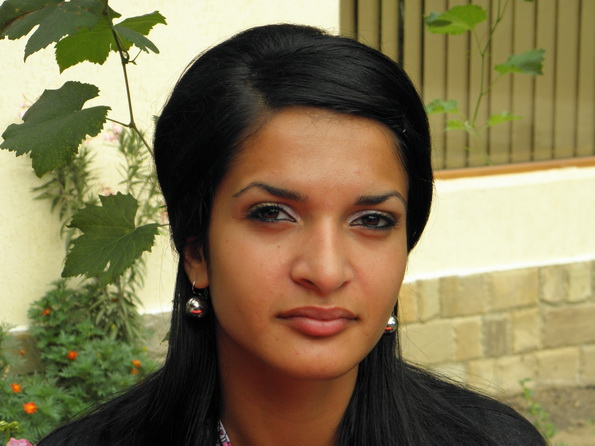 business management and health mediator. In their city, they held a series of training meetings and discussions in an informal setting during which they introduced hundreds of children and young people and their parents and teachers with problems that followed the early marriage and having children at an inappropriate age. People have used community meetings under the campaign to share many urgent and difficult to resolve problems for which they need advice and assistance. A major problem in the region now is migration. The team of the campaign in Pestera realized that they should fight also against the bad examples which unfortunately are often the role models: drug dealers and those who are engaged in prostitution. It appeared, however, that when properly approach is chosen the process of rethinking the values and attitudes in the community could be awakened. The activists from the town of Peshtera reported a positive trend as a result of the meetings: perception of the education as a priority for young people, standing in front of marital commitment both in time and in the hierarchy of values.
business management and health mediator. In their city, they held a series of training meetings and discussions in an informal setting during which they introduced hundreds of children and young people and their parents and teachers with problems that followed the early marriage and having children at an inappropriate age. People have used community meetings under the campaign to share many urgent and difficult to resolve problems for which they need advice and assistance. A major problem in the region now is migration. The team of the campaign in Pestera realized that they should fight also against the bad examples which unfortunately are often the role models: drug dealers and those who are engaged in prostitution. It appeared, however, that when properly approach is chosen the process of rethinking the values and attitudes in the community could be awakened. The activists from the town of Peshtera reported a positive trend as a result of the meetings: perception of the education as a priority for young people, standing in front of marital commitment both in time and in the hierarchy of values.
All local campaign leaders agreed on the position that despite the success of their test models it would be inconceivable to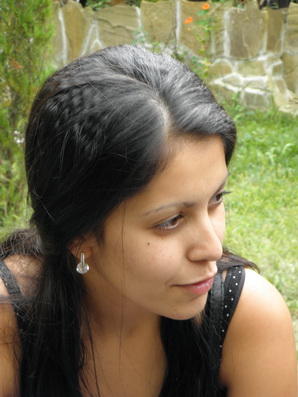 expect a constant tendency to change if the work in different communities was limited and restricted only to several campaigns depending on project funding. As a logical proposal to continue activities directed to solving the problem of early marriages was the necessity of inclusion of social services concerning the issue in the strategies for social services at district and municipal level which are being elaborated at present. Georgi Bogdanov, executive director of the National Network for Children, presented to the participants in the meeting the main types of community social services: Community Support Centers, Centers for working with street children and others. The possibilities and practical ways to incorporate the successful activities developed within the local campaigns in the existing social services and their conversion to state delegated activities, funded by the State budget were also discussed at the meeting. The participants agreed that within the current social services there was no specific attention towards the problems of the Roma community and there was a lack of realized activities within the community. In many localities Roma that have both the need and right to benefit from these social services actually do not have access to them. This raises the need an opportunity for extending the existing social services within the Roma community to be explicitly included in the process of preparing regional strategies for social services. The participants discussed options for including activities aimed at prevention of early marriages in the existing local social services at the municipal level: public support centers, centers for working with street children, centers for social rehabilitation and integration, etc; and to establish new services and social services providers units where they are missing. Participants drafted a plan for specific advocacy activities in each of the municipalities and districts covered under the project. "I am very impressed with everything I heard! - George Bogdanov said after the meeting - This is a real social work in Roma communities: there is a huge need of such activities but at this stage no institution has implemented it. It is essential that the idea of Amalipe and grassroot activists is that the social work should intend to develop the community not only to provide social service. I wish you success in advocacy activities to regional and municipal strategies for social services – it is very important and the process of their preparation should not be missed!
expect a constant tendency to change if the work in different communities was limited and restricted only to several campaigns depending on project funding. As a logical proposal to continue activities directed to solving the problem of early marriages was the necessity of inclusion of social services concerning the issue in the strategies for social services at district and municipal level which are being elaborated at present. Georgi Bogdanov, executive director of the National Network for Children, presented to the participants in the meeting the main types of community social services: Community Support Centers, Centers for working with street children and others. The possibilities and practical ways to incorporate the successful activities developed within the local campaigns in the existing social services and their conversion to state delegated activities, funded by the State budget were also discussed at the meeting. The participants agreed that within the current social services there was no specific attention towards the problems of the Roma community and there was a lack of realized activities within the community. In many localities Roma that have both the need and right to benefit from these social services actually do not have access to them. This raises the need an opportunity for extending the existing social services within the Roma community to be explicitly included in the process of preparing regional strategies for social services. The participants discussed options for including activities aimed at prevention of early marriages in the existing local social services at the municipal level: public support centers, centers for working with street children, centers for social rehabilitation and integration, etc; and to establish new services and social services providers units where they are missing. Participants drafted a plan for specific advocacy activities in each of the municipalities and districts covered under the project. "I am very impressed with everything I heard! - George Bogdanov said after the meeting - This is a real social work in Roma communities: there is a huge need of such activities but at this stage no institution has implemented it. It is essential that the idea of Amalipe and grassroot activists is that the social work should intend to develop the community not only to provide social service. I wish you success in advocacy activities to regional and municipal strategies for social services – it is very important and the process of their preparation should not be missed!









